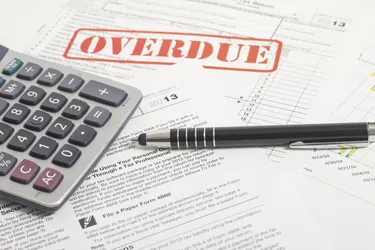
Commercial paper is also known as short-term paper because of the brief length of its term. To be considered short term, a debt instrument must mature in nine months or less. Commercial paper can take several different forms, including promissory notes, U.S. Treasury bills and certificates of deposit. Market analysis agencies such as Standard and Poors rate each instrument of commercial paper based on the financial strength of the issuing company, and there are advantages and disadvantages to both issuing it and investing in it.
Liquidity
Video of the Day
Government agencies and large companies often use commercial paper to fill in gaps in their cash flow. Private companies may issue short-term debt instruments to cover the time between performing work for a major client and receiving payment. This reduces the need to keep large cash reserves on hand to pay for future costs that can be reasonably estimated. Since the organization's cash flow needs are satisfied, it is free to devote more resources to long-term expansion projects.
Video of the Day
Return on Investment
Commercial paper offers a return on investment for buyers without requiring a long-term commitment. This makes it a viable option for institutional investors such as mutual funds and retirement plans that may not be able to tie up their funds for a long period of time. The rate of return for a particular investment depends on the type of debt instrument and the terms set by the issuing company.
Financial Problems for the Issuing Company
Commercial paper does have some disadvantages that must be taken into consideration when a company is deciding whether to issue more debt. Because of the short time frame, the company must be sure of its ability to repay the debt on the maturity date. If it runs into unexpected financial problems and cannot cover its debts, the market may react poorly and cause the situation to snowball. The company will have even more trouble paying off its debts in the future once it is considered too risky for new investors.
Risk to Investors
Financial struggles on the part of the issuing company also have adverse effects on investors in commercial paper. Potential buyers should look carefully at the security's rating before investing any money. Defaults on highly rated commercial paper are rare due to the stability of the companies issuing the instruments. The main risk to investors in financially healthy companies is the possibility that the company will stop rolling over the commercial paper program and new debt instruments will not be available in the future.